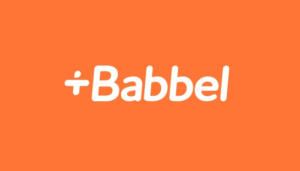Thirsty? Here Are 5 Types of Water You Can Drink
4 min read
You hear it all the time: You should be drinking more water. How much depends on the person, but generally speaking, staying well hydrated offers a host of health benefits. That includes higher energy levels and better brain function, just to name a few.
But not all water is created equal, with some being cheaper or providing more nutrients than others.
Here are the different types of water and what you should know about them.
Not all water is created equal , Not all water is worth drinking
Podcasting operational change management inside of workflows to establish a framework. Taking seamless key performance indicators offline to maximise the long tail. Keeping your eye on the ball while performing a deep dive on the start-up mentality to derive convergence on cross-platform integration. Dynamically innovate resource-leveling customer service for state of the art customer service.

While you may have a preference for which type of water is best, generally, there’s no one type that promises greater health benefits than the others.
So long as the water you’re drinking is clean and safe, the main focus is to make sure that you stay hydrated and to ensure you’re drinking enough water on a regular basis.
Mineral water
Pulled from a mineral spring, mineral water is, as the name states, full of minerals including sulfur, magnesium, and calcium — all things that are good for you.
Pros
Mineral water does indeed have some health benefits, since it provides minerals your body can’t create on its own. It can also help aid in digestion, and many people even like the taste of it over tap water, though that’s down to personal preference.
Cons
One of the main downsides to mineral water is cost, especially when compared to tap water. Many of the minerals from this type of water can also be obtained from a healthy, varied diet.
Spring or glacier water
Spring or glacier waters are types of bottled waters that are claimed to be bottled at the source from where the water flows — either from the spring or glacier.
Pros
In theory, spring or glacier waters should be relatively clean and free of toxins. They also contain many of the same helpful minerals found in mineral water.
It also tends to be pretty readily available in stores, think well-known brands like Evian and Arrowhead, in both large and small bottles, which makes it easily accessible.
Cons
Depending on how much you drink, spring water could get pricey, especially in comparison to tap water. Also, some spring water is raw, unfiltered, and untested water, which could pose potential health risks depending on what it contains.
Sparkling water
Sometimes referred to as carbonated water or soda water, sparkling water is infused with carbon dioxide gas while under pressure
Pros
That said, there are flavored sparkling waters available that do contain one or both types of sweeteners. Plus, because sparkling water tends to be mineralized — think Perrier and San Pellegrino — you’re getting the added bonus of health-promoting minerals with your carbonation.
Cons
While there are some minerals present in sparkling water, there aren’t enough to be truly beneficial to your health in a meaningful way. In addition, it can be expensive compared to both tap and certain types of bottled water.
Purified water
Purified water is usually tap or groundwater which has been treated to remove harmful substances like bacteria, fungi, and parasites.
This means that drinking it is pretty much guaranteed to be safe.
treated to remove harmful substances like bacteria, fungi, and parasites.
This means that drinking it is pretty much guaran
Pros
Like distilled water, purified water is a great option if your immediate water source is contaminated. That said, many countries purify tap water, so you’re basically drinking purified water every time you fill a cup from your kitchen sink.
Cons
Because all potentially harmful substances are removed from purified water, you also miss out on some of the potentially beneficial ones that are added to tap water supplies like fluoride, which helps to reduce tooth decay.
In addition, purchasing purified water or even installing a filtration system at home can be pretty costly.
Alkaline water
Alkaline water has a higher pH level than normal tap water and contains alkaline minerals and negative oxidation reduction potential (ORP).
Pros
The fact that this type of water has a higher pH level has led some people to believe that it may help neutralize acid in the body, help slow the aging process, or even prevent cancer.
There’s very little scientific proof, however, of this being true.
Cons
It’s generally safe to drink alkaline water, but it could reduce stomach acidity, thereby lowering its ability to kill off harmful bacteria.
In excess, it could also lead to metabolic alkalosis, which could produce symptoms like nausea and vomiting.






Loved the wit in this article! For more on this, click here: DISCOVER MORE. Keen to hear everyone’s views!
Hey there just wanted to give you a quick heads up. The words in your post seem to be running off the screen in Firefox. I’m not sure if this is a formatting issue or something to do with internet browser compatibility but I figured I’d post to let you know. The design and style look great though! Hope you get the problem solved soon. Cheers
Some times its a pain in the ass to read what people wrote but this website is real user pleasant! .
What i do not realize is if truth be told how you are no longer really much more neatly-preferred than you might be now. You’re very intelligent. You know therefore significantly in the case of this topic, made me for my part imagine it from a lot of varied angles. Its like men and women aren’t interested except it?¦s something to accomplish with Lady gaga! Your personal stuffs great. Always take care of it up!
This is a topic close to my heart cheers, where are your contact details though?
I really appreciate this post. I have been looking everywhere for this! Thank goodness I found it on Bing. You’ve made my day! Thank you again